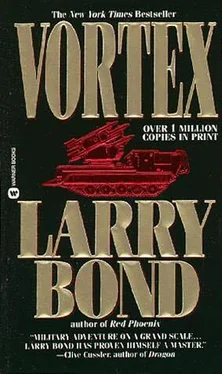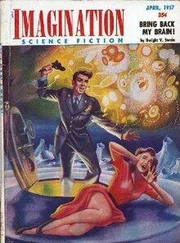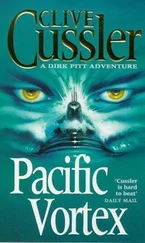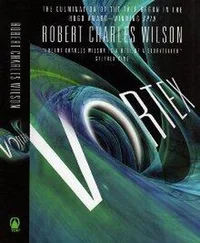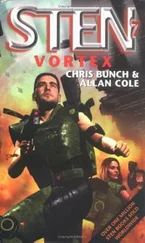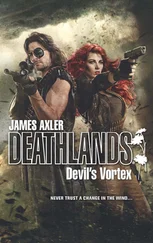“The gallows outside this tent-“
“Are filled with traitors, Kommandant. Hostages executed in just reprisal for futile attacks on our supply columns,” Hertzog interrupted him.
“My idea, actually. In accordance with the wishes of our beloved President.
I trust that you have no objection?”
Kruger stared openmouthed at him, scarcely able to believe what he’d just heard. Hostages? Innocent civilians rousted from their beds at gunpoint and killed simply because Namibian soldiers were shooting at supply trucks? It was worse than insane. It was criminal. He’d seen dead civilians be foremen women, and children caught by artillery or in a cross fire. You expected such things in war. But this was something quite different. Cold, deliberate, calculated butchery.
Strydorn took him by the arm and turned him away from Hertzog.
“Never mind about the methods used to ensure rear area security, Henrik. They’re out of your jurisdiction.” The unspoken warning in the brigadier’s voice was plain.
Kruger closed his mouth and looked closely at his superior. A nerve twitched irregularly beneath Strydom’s right cheek. My God. The man was frightened. Scared out of his wits by this bloody bully boy Hertzog.
“Now, as to why I summoned you hereStrydom’s evident unease intensified.
“Your secondin-command… Kruger held up a hand.
“Yes, sir. Where is Major Forbes?”
“Major Forbes is under arrest, Kommandant.” Hertzog moved closer, a grim smile on his face.
“He’s on his way back to Pretoria under guard at this very moment.”
“What?” Kruger’s hands balled into fists.
“What in God’s name for?”
“For suspected treason.” Hertzog’s smile grew less grim and more smug.
“Earlier this afternoon, I myself heard the Englishman slandering our president and the chief of staff. Naturally, I arrested him at once. One cannot allow such insults to go unpunished. I’m sure you agree.” Hertzog spun round on his heel and walked away without waiting for a reply.
Kruger glared at the man’s departing back, fighting the temptation to pull his pistol and pump the bastard full of 9mm slugs. He didn’t doubt that Forbes had used a few choice swear words to describe his dissatisfaction with recent events, but certainly nothing that any sane man would call treasonous. And if that was how Vorster and his cronies planned to define treason, who then was safe?
Strydorn moved into his line of sight.
“Keep your mouth shut, Henrik, I beg of you. I cannot spare any more of my experienced officers.”
He led Kruger over to a map table. Several junior officers scattered out of their path. Strydom leaned over the map, tracing the positions held by the 20th Cape Rifles with a thumbnail.
“Your attack today was a success, I see.”
“A success?” Kruger found it difficult to talk through clenched teeth.
“Your battalion gained ground, true?” The brigadier risked a glance over his shoulder. Hertzog leaned carelessly against the opposite tent wall, cold eyes carefully fixed on them.
Kruger slammed a fist onto the map, startling several nearby staff officers.
“Oh, we gained ground all right, Brigadier. Three hundred blery meters of open, useless wasteland and one stinking gully! And capturing that fucking ground cost me ten killed and thirty-six wounded! At that rate, our whole verdomde country will be bled white before we reach
Windhoek! “
Strydom grabbed him by the arm again and leaned closer, his voice low, fearful, and urgent.
“Shut up, Kruger! Do you want to be arrested, too?
Do you want your men commanded by someone like that?” He jerked his head in Hertzog’s direction.
Kruger shook his head reluctantly. A thug and political hack in charge of his battalion? Madness.
“Now listen to me, Henrik, and listen closely. Your attack today was successful-just as your attack tomorrow will be successful. Pretoria does not want to hear about failure, about supply difficulties, or about casualties. Do you understand me?”
Kruger stood motionless for what seemed an eternity. What Strydom was suggesting violated every tenet of his training and experience as a South
African officer. What had happened to his nation? How could it have fallen into the hands of such brutal incompetents? He glanced again at
Hertzog’s smug, gloating face and nodded slowly, feeling ashamed as he did so.
He would buckle under for the moment-but only for the moment. Only to save some of his men.
SEPTEMBER I O-THE KREMLIN, MOSCOW, R.S.F.S.R.
Outside the Kremlin’s redbrick walls, the streets of Moscow were full of shoppers-shoppers standing in record-long lines for a few of the basic necessities. Bread already gone stale in warehouses. Shriveled potatoes.
Rotting cabbage. Rare cuts of meat more gristle and bone than anything else.
Soap that wouldn’t lather, and gasoline so filled with impurities that it wrecked almost as many engines as it powered.
It was the seventh year of perestroika, the grand program of economic restructuring. It was the seventh year of continuing failure.
Within the Kremlin’s walls, the Soviet State Defense Council met in a small, elegantly furnished chamber. Ten chairs surrounded a rectangular oak table topped only by notepads, pens, and a tray holding two bottles of vodka. The State’s anti alcohol campaign continued unabated, but serious decisions always seemed to call for something more stimulating than tea or fizzy mineral water. A German-manufactured word-processing system occupied one corner of the room, ready for use by the secretaries who would record any major decisions for later translation into action directives for specific ministries or individuals.
Only six of the ten chairs were occupied. The Soviet State Defense Council was made up of the highest-ranking members of the Politburo, itself a body of elite decision makers whose power had been only partly diluted by the
USSR’s newly formed Congress of People’s Deputies. Any large body takes its lead from a smaller body, and from smaller and smaller groups, until finally the power is wielded by a few key individuals.
The President of the Soviet Union looked wearily around the table, his red-rimmed eyes roving from face to face. The minister of defense, plump and pudgy despite a precisely tailored suit and rows of unearned medals.
Next to him, the chief of the general staff, seated stiffly in full dress uniform. Directly across the table, the cherubic, bushy-eye browed chairman of the KGB, who sat next to the foreign minister
-apparently on the general principle that one should always stay close to one’s greatest rival. And to his immediate right, the boyish face of a comparative newcomer, the academician who now served as the President’s chief economic advisor.
One face was missing, the gray, skeletal visage of the Communist Party’s chief ideologist. The old man had been in the hospital for several weeks, fighting a losing battle with pneumonia. It was just as well, the President thought. If he wanted lectures on abstract political philosophy, he could always get them from his wife. The Soviet Union’s national security decisions needed a firmer basis in reality. Now more than ever.
Behind him, a clock softly chimed three times, signaling the passage of as many fruitless hours since they’d begun debating Fidel Castro’s astounding call for the direct invasion of South Africa. He rapped the table sharply with a pencil, interrupting a heated exchange over the KGB’s failure to give them advance warning of Castro’s intentions.
“Comrades, please, we’re not getting anywhere with this squabbling. Time is short. We should confine ourselves to the matter directly at hand.”
In theory, this discussion was unnecessary. In theory, he held more personal power than any Soviet leader since Joseph Stalin. In theory, he could simply impose his will on these five men, and through them on the
Читать дальше
